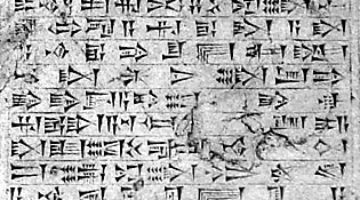Línguas, língua e mais línguas.
Você tem ideia de quantas línguas existem no mundo?
Dezenas? Centenas? Milhares?
Naturalmente, estou falando de línguas, idiomas, sistemas de comunicação verbal; não estou falando de biologia, garoto esperto.
Geralmente a gente imagina uma relação entre línguas e países, mais ou menos cada país tem a sua língua. A não ser em casos como p. ex. o inglês, ou o espanhol, que são falados em vários países, além dos respectivos países de origem. Tem também países em que se falam mais de uma língua, como p. ex. o Canadá ou a Suíça.
Então, se há mais ou menos 200 países, dependendo dos critérios que se usam para definir o que é um “país”, a gente esperaria que houvesse mais ou menos umas 200 línguas, certo?
Mas as coisas não são bem assim. Quando se diz, p. ex., que em tal país se fala tal ou tal língua, geralmente o que se quer dizer é que tal língua é a língua oficial daquele país. Na realidade, não existe uma correlação direta, absoluta, entre países e línguas. Uma língua é um elemento cultural relacionado a um grupo étnico. Um país é uma divisão territorial de caráter administrativo, político. O fato de um país adotar uma língua como “oficial” não significa que aquela seja a única língua falada dentro do território daquele país. Uma língua ser oficial significa apenas que ela é usada pelo governo, pelos estabelecimentos de ensino, pela mídia &c. em situações formais ou quando a mensagem é dirigida à população como um todo.
Então, como a gente faria para saber quantas línguas existem no mundo? A gente teria que contar, naturalmente; sair por aí verificando que língua cada pessoa fala, registrar tudo em um banco de dados e depois fazer a contagem. Acontece que já fizeram isso. Uma organização chamada SIL International publica, desde os anos 50, um catálogo no qual são registradas todas as línguas conhecidas ou que vão sendo descobertas a cada ano. Hoje, naturalmente, este catálogo também é publicado online. E é aí que a gente pode encontrar a resposta a essa questão.
Se você acessar o site ethnoloɠue.com, de cara você já encontra a resposta. Ali estão catalogadas nada menos que 7151 línguas. É isso mesmo: no mundo todo, atualmente, existem pelo menos 7151 línguas. E certamente existem outras que ainda não foram descobertas ou devidamente registradas. Aliás, este catálogo hoje inclui apenas as línguas que estão sendo usadas atualmente por pelo menos uma comunidade em algum lugar do mundo. Portanto, não inclui línguas extintas, como p. ex. o sumério ou o egípcio antigo, porém inclui línguas clássicas que ainda têm alguma relevância cultural ou social, como p. ex. o latim. E, claro, inclui também as línguas de sinais.
Aí, você pode pensar: se existem cerca de 200 países, e mais de 7000 línguas, isso daria, na média, mais ou menos 35 línguas por país. E, então, cadê todas essas línguas?
Pois é, em geral a gente só “enxerga” as línguas com grande número de falantes, as línguas com status oficial, as línguas que aparecem mais na mídia… Olha o nosso caso, por exemplo: quando se pergunta que língua se fala no Brasil, automaticamente a gente responde: português. Falando assim, parece que o português é a única língua usada em todo o território brasileiro. Mas a verdade é um pouco diferente: temos muitas comunidades em que se mantém a língua nativa original, p. ex. nheengatu, baniwa, tukano, krenák &c., e ainda comunidades que falam línguas que chegaram aqui por meio da imigração, p. ex. alemão, italiano, japonês, árabe, ucraniano &c. E ainda temos a LIBRAS, a língua brasileira de sinais. No total, a gente encontra no Brasil cerca de 17 línguas faladas em comunidades de imigrantes, e mais de 200 línguas nativas que, de uma forma ou de outra, conseguem sobreviver até hoje. Outro exemplo “clássico” é o da Itália: quando se fala em Itália, a gente pensa logo em uma língua só, o italiano padrão – que, de fato, é a língua oficial do país. Mas no território italiano são reconhecidas cerca de trinta línguas.
Está aí então, agora você já sabe: no mundo atualmente existem nada menos que 7151 línguas. É língua que não acaba mais! Para a gente que gosta de idiomas, isso é uma boa notícia; afinal, nunca vai faltar língua para a gente aprender!
Bom, por enquanto é isso aí. Até a próxima.

